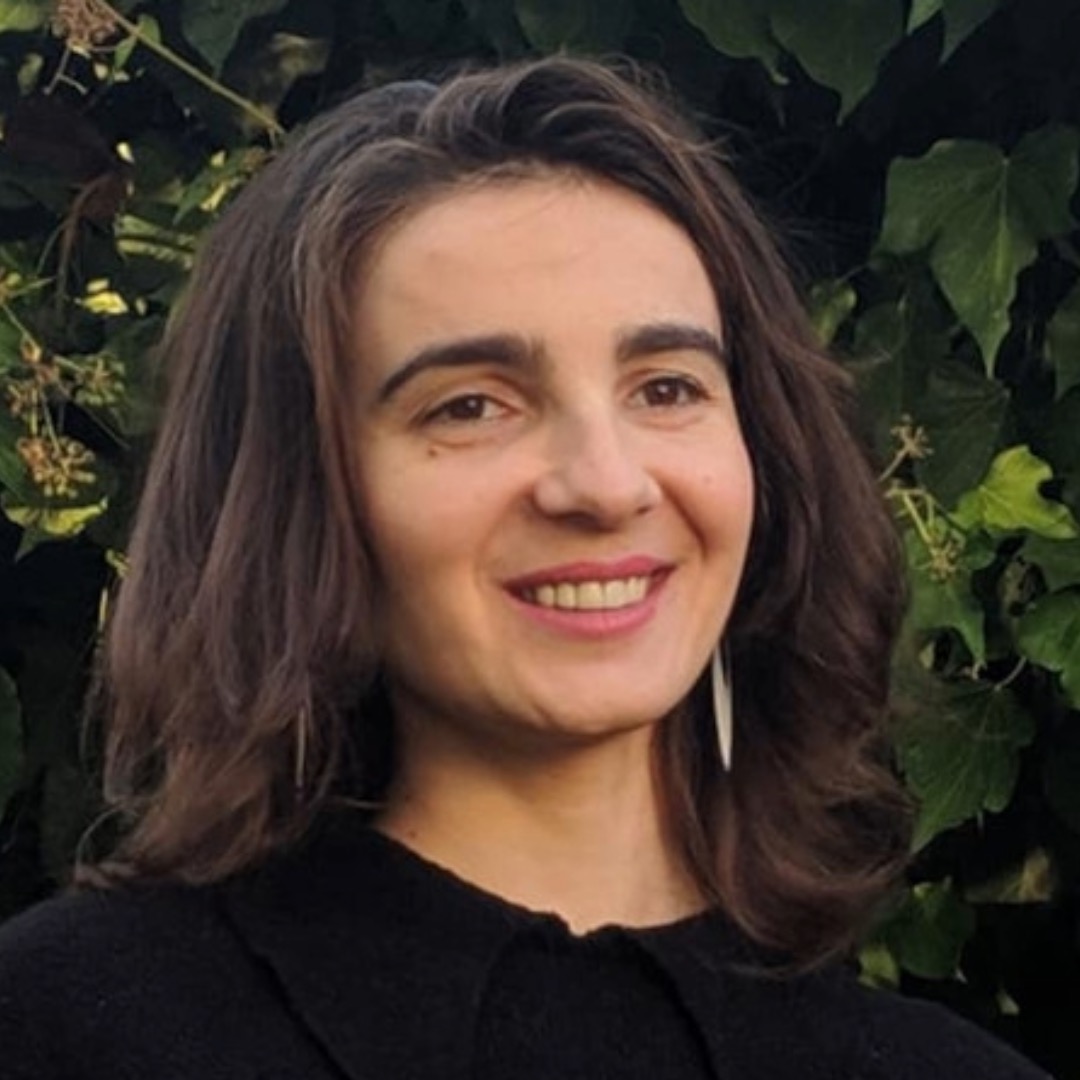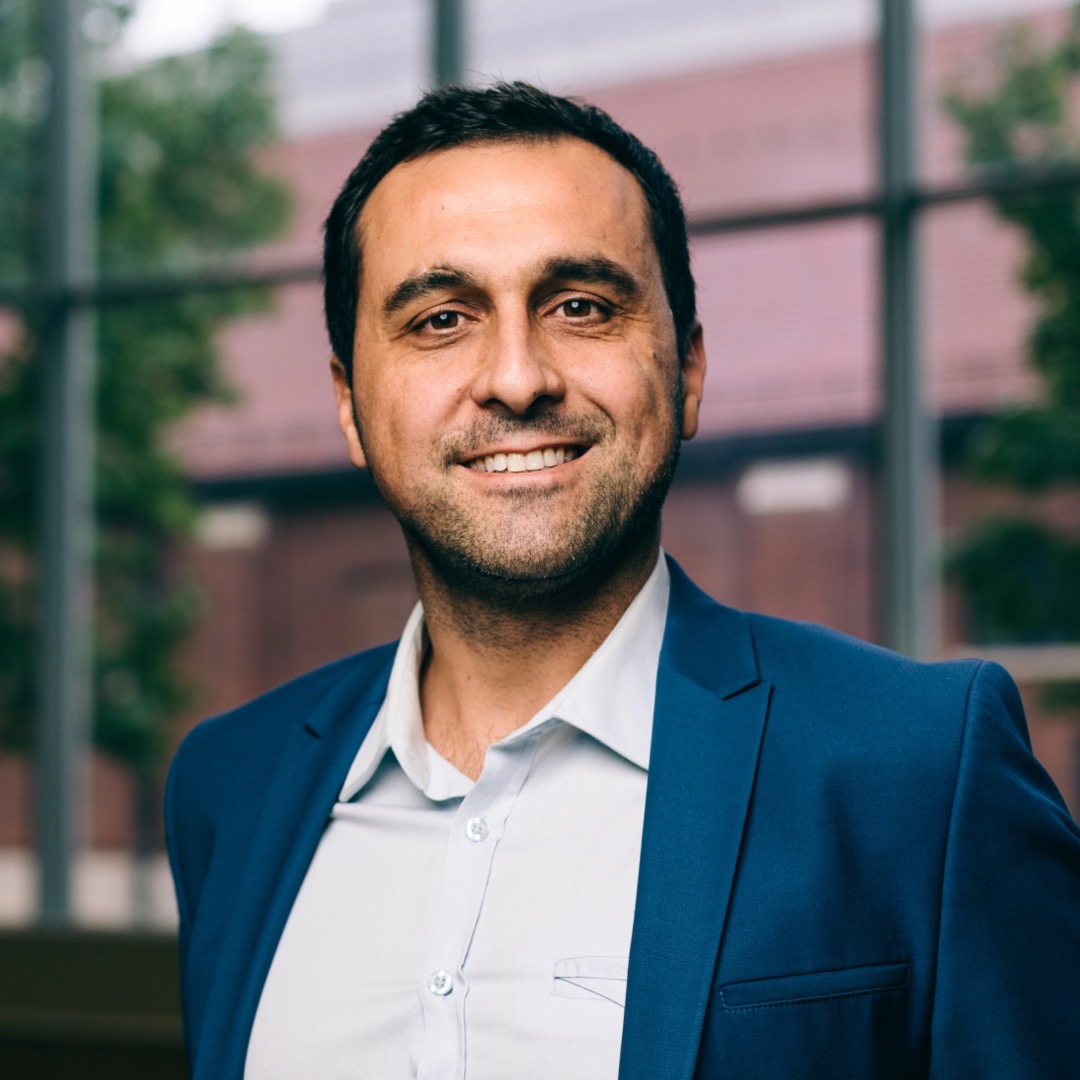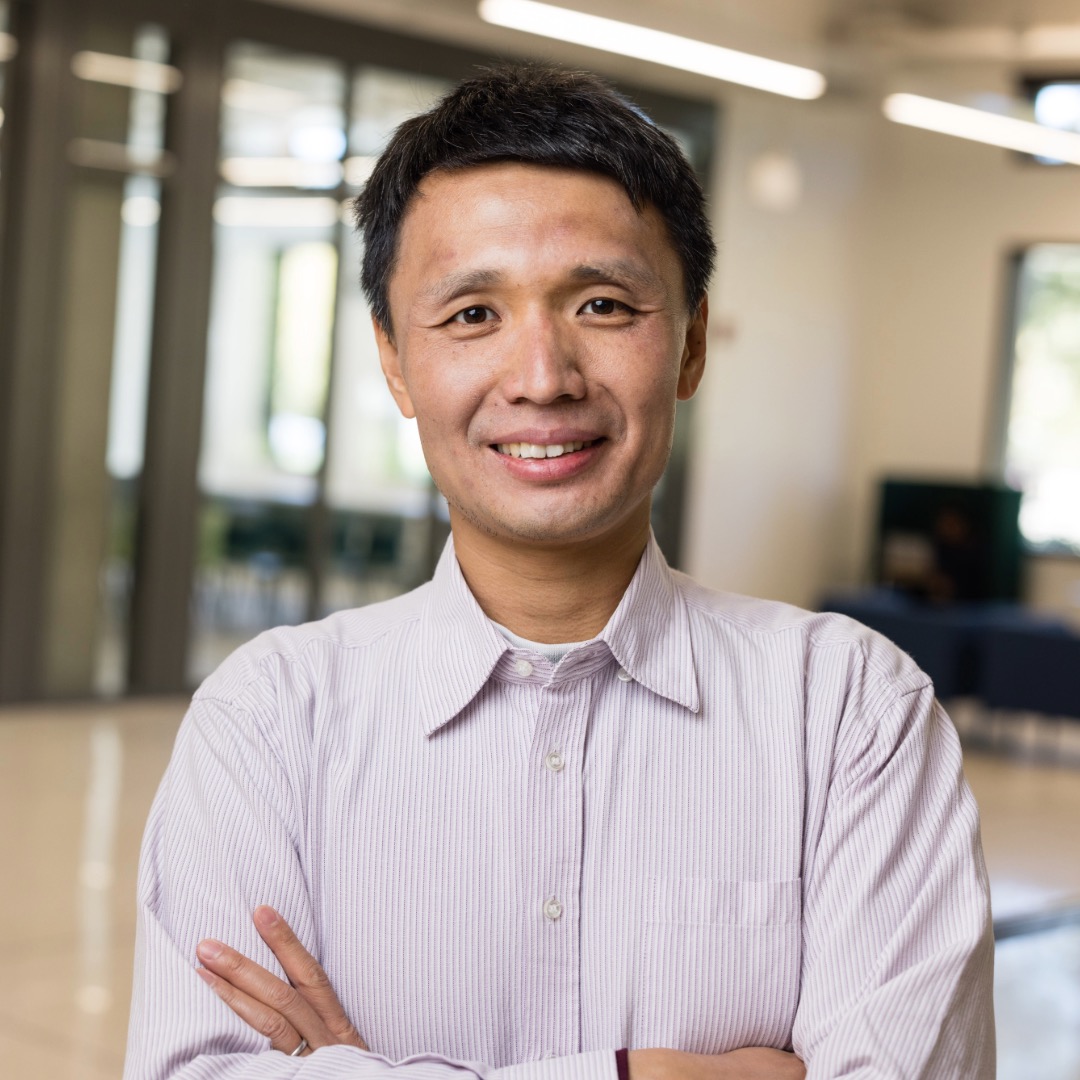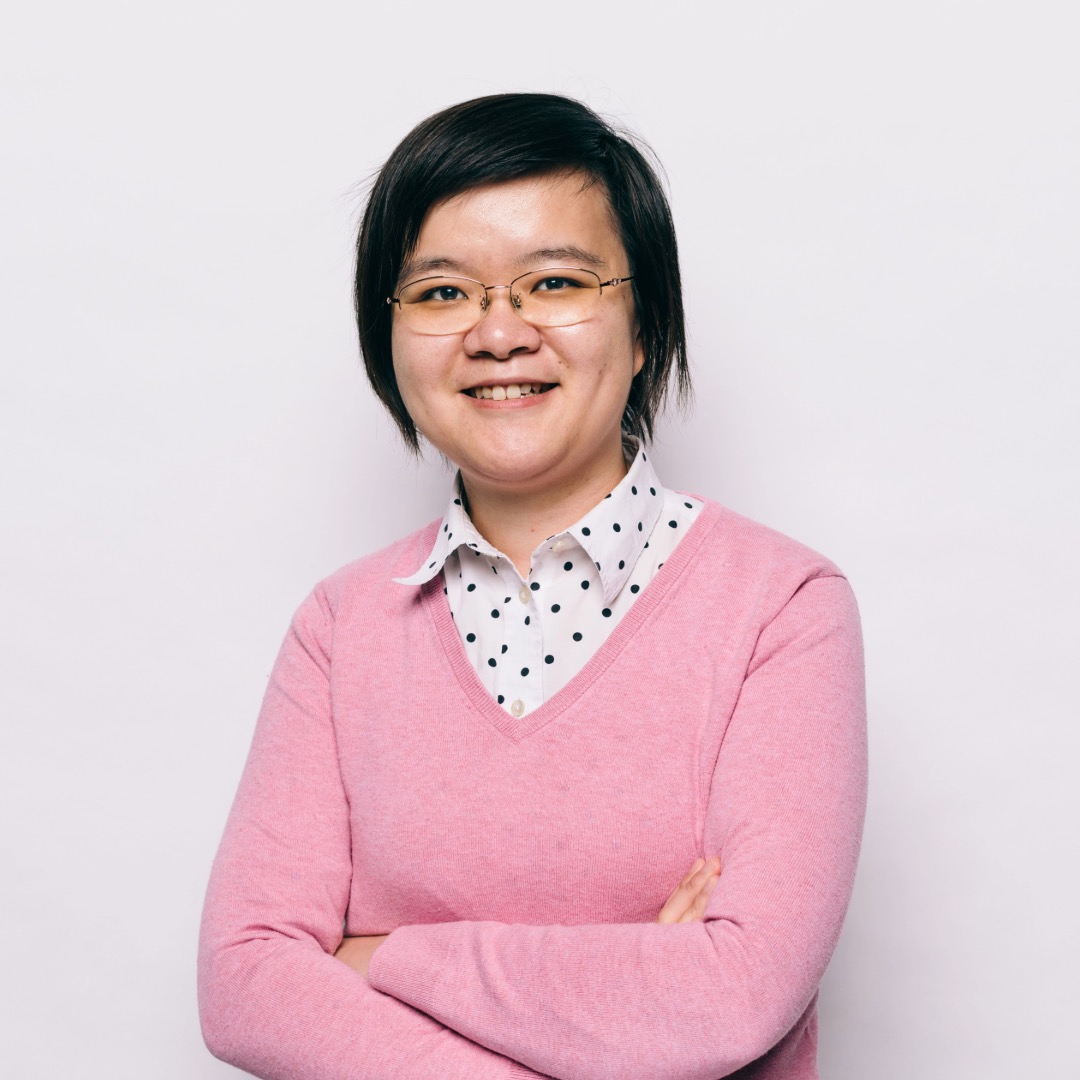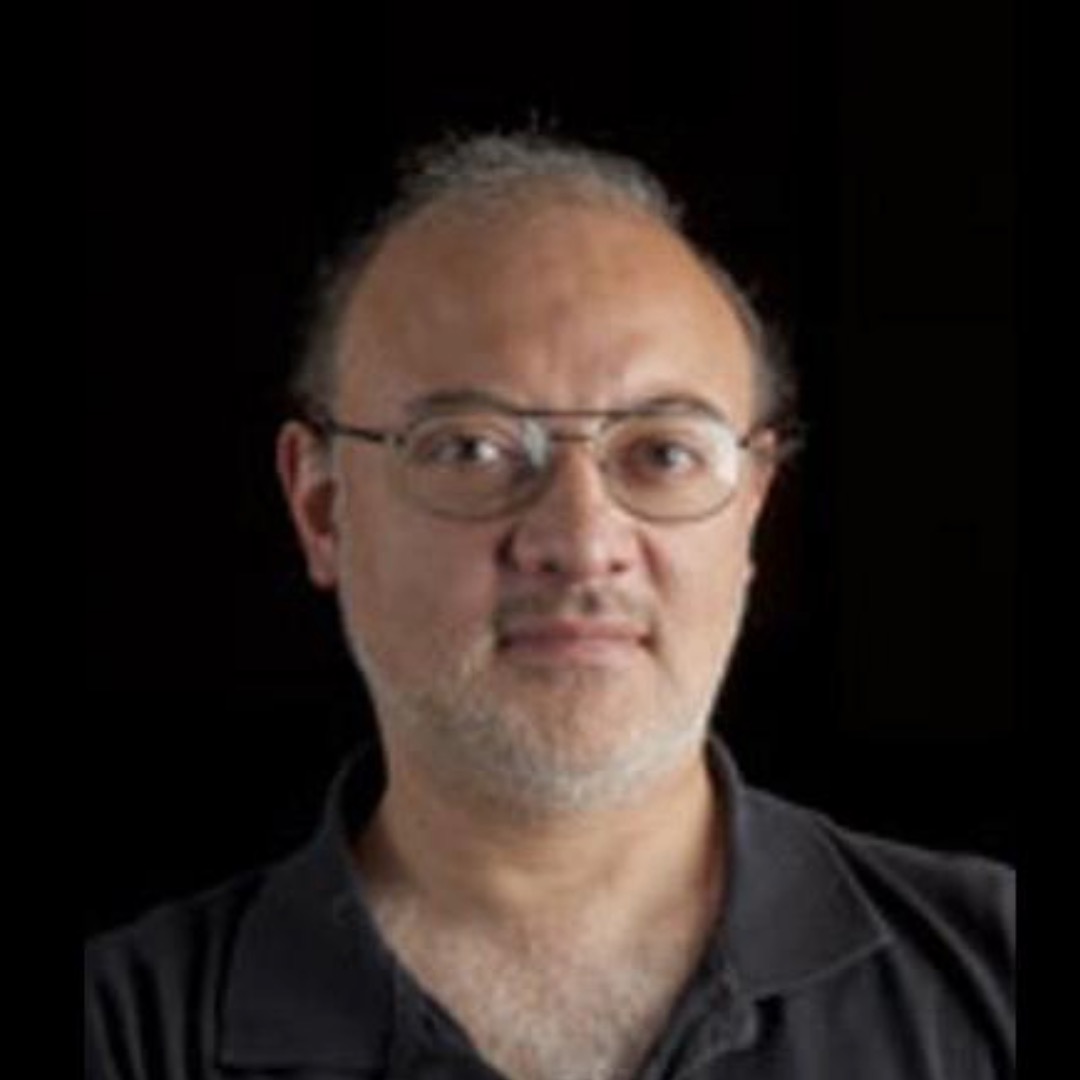Ten Purdue CS faculty receive promotions from Purdue's Board of Trustees
04-28-2025
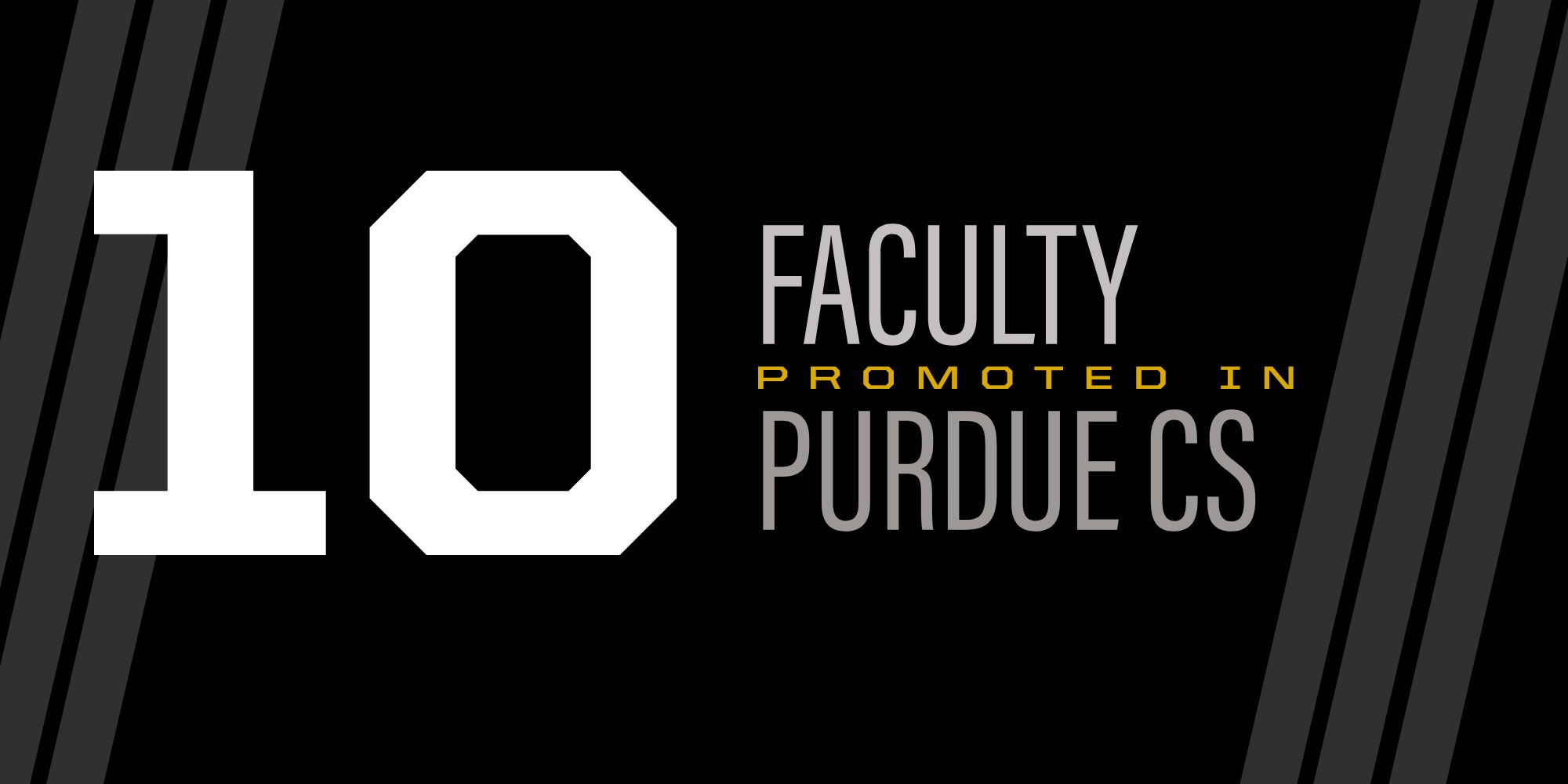
Professors Aniket Bera, Antonio Bianchi, Simina Brânzei, Z. Berkay Celik, Pedro Fonseca, David "Jing" Tian, Yexiang Xue, Ming Yin, Tony Bergstrom, and Gustavo Rodriguez-Rivera were approved for promotion by Purdue University's Board of Trustees on April 4, 2025.
Congratulations to our faculty who received promotions from Purdue University's Board of Trustees.
The Purdue University Board of Trustees approved faculty promotions for Department of Computer Science faculty members. The following promotions are effective with the 2025-26 academic year.
To Associate Professor
Bera's research interests include affective computing, augmented intelligence, computer graphics, social robotics and cognitive modeling. His work applies machine learning, computational psychology and physically based simulation to develop real-time models of human behavior. He received his PhD from the University of North Carolina at Chapel Hill in 2017. Prior to joining Purdue University, he was a research assistant professor at the University of North Carolina at Chapel Hill and is currently an adjunct professor at the University of Maryland at College Park. He received a Senior Editor appointment for IEEE Robotics and Automation Letters (RA-L) and serves as conference chair for ACM SIGGRAPH Motion, Interaction and Games. His research has been featured by CBS, WIRED, Forbes, Fast Company and others. He is a member of CERIAS.
Bianchi's research interests include software and systems security, with a focus on protecting edge devices like smartphones, IoT devices, drones and embedded systems. His work explores automated techniques in program analysis, binary analysis, fuzzing, reverse engineering, and program repair to find and fix vulnerabilities. He has also conducted user studies to improve the usability of proposed security solutions. He received third place in the DARPA Cyber Grand Challenge as a core member of Shellphish, OOO and Nautilus, and has helped organize many security competitions. He is a co-founder of the PurSec Lab and a member of CERIAS
Brânzei's research interests include algorithmic game theory, artificial intelligence, theory of computation and algorithms. Her work explores topics such as fair division, markets and auctions, games, learning dynamics and local search processes. She is particularly interested in the connections between computational complexity, optimization and dynamical systems. Her research is supported by an NSF CAREER Award. Prior to joining Purdue University, she was a postdoctoral researcher at the Hebrew University of Jerusalem and a research fellow at the Simons Institute for the Theory of Computing. She completed her PhD at Aarhus University in Denmark.
Celik's research interests include software and systems security, with a focus on emerging computing platforms such as IoT devices, robotic vehicles, industrial systems and mobile technologies. His work combines systems design, program analysis and formal methods to strengthen security and privacy in complex environments. He co-directs the Purdue Security Laboratory (PurSec Lab) and is affiliated with CERIAS to promote interdisciplinary collaboration. Prior to joining Purdue University, he earned his PhD in computer science and engineering from Penn State University. His research is supported by NSF, DARPA, ONR and industry partners, and he is a recipient of the NSF CAREER Award, Amazon Research Award and ACM CCS Distinguished Paper Award.
Fonseca's research interests include building reliable and secure systems, with a focus on core software such as operating systems, hypervisors and distributed systems. His work explores empirical studies of emerging trends, scalable testing tools, and system design to strengthen reliability and security. He leads the Reliable and Secure Systems Lab at Purdue University. Prior to joining Purdue, he was a postdoctoral researcher at the University of Washington. He is a recipient of an NSF CAREER Award, a Google Faculty Research Award and a Google Research Scholar Award. He is a member of CERIAS
Tian's research interests include system security, with a focus on embedded systems, operating systems and trusted computing. His work explores building secure and trustworthy computing environments. He earned his PhD in computer and information science and engineering from the University of Florida in 2019, where he was advised by Kevin Butler and served as a founding member of the Florida Institute for Cybersecurity (FICS). Prior to joining Purdue University, he spent a year conducting machine learning research at the University of Oregon and worked for four years as a software engineer at Nokia R&D in China. He is a member of CERIAS
Xue's research interests include artificial intelligence, machine learning, probabilistic reasoning and decision-making under uncertainty. His work focuses on developing intelligent systems that integrate decision-making with statistical modeling to enable optimal decisions in complex, real-world environments. He develops cross-cutting computational methods with applications in computational sustainability, scientific discovery, renewable energy, ecology, urban computing and behavioral econometrics. He earned his PhD in computer science from Cornell University prior to joining Purdue University.
Yin's research interests include social computing, crowdsourcing, artificial intelligence and applied machine learning. She designs large-scale online behavioral experiments to understand participant behavior in systems like Amazon Mechanical Turk and uses this data to develop models, algorithms and interfaces that improve the intelligence and sustainability of these systems. Her work connects to computational social science, human-computer interaction and behavioral economics. Yin completed her PhD in computer science at Harvard University and was a postdoctoral researcher at Microsoft Research NYC. She is a Siebel Scholar.
To Clinical Associate Professor
Bergstrom's work focuses on user experience research, product design, and data analysis, with a strong interest in educational technology. After completing his PhD in computer science at the University of Illinois, where he researched social cues through computer-mediated communication, he spent time in the software development industry, including roles at D2L and Shopify. He is passionate about improving educational and entrepreneurial experiences.
To Clinical Professor
Rodriguez-Rivera has over 20 years of teaching experience and has received multiple accolades, including the ACM Faculty Award in Computer Science in 2020 and 2023, and Best Teacher in the School of Science in 2014 and 2016. In his classes, he emphasizes systems programming and software engineering. His research spans operating systems, computer networks, memory management, embedded and real-time systems, and extends to numerical analysis, computer graphics, computer vision, signal processing, artificial intelligence, data structures, and speech recognition.
About the Department of Computer Science at Purdue University
Founded in 1962, the Department of Computer Science was created to be an innovative base of knowledge in the emerging field of computing as the first degree-awarding program in the United States. The department continues to advance the computer science industry through research. US News & World Report ranks the department No. 8 in computer engineering and No. 16 and 19 overall in undergraduate and graduate computer science. Additionally, the program is ranked No. 6 in cybersecurity, No. 8 in software engineering, No. 13 in systems, No. 15 in programming languages and data analytics, and No. 18 in theory. Graduates of the program are able to solve complex and challenging problems in many fields. Our consistent success in an ever-changing landscape is reflected in the record undergraduate enrollment, increased faculty hiring, innovative research projects, and the creation of new academic programs. The increasing centrality of computer science in society, academic disciplines and new research activities—centered around foundations and applications of artificial intelligence and machine learning, such as natural language processing, human computer interaction, vision, and robotics, as well as systems and security—are the future focus of the department. Learn more at www.cs.purdue.edu.
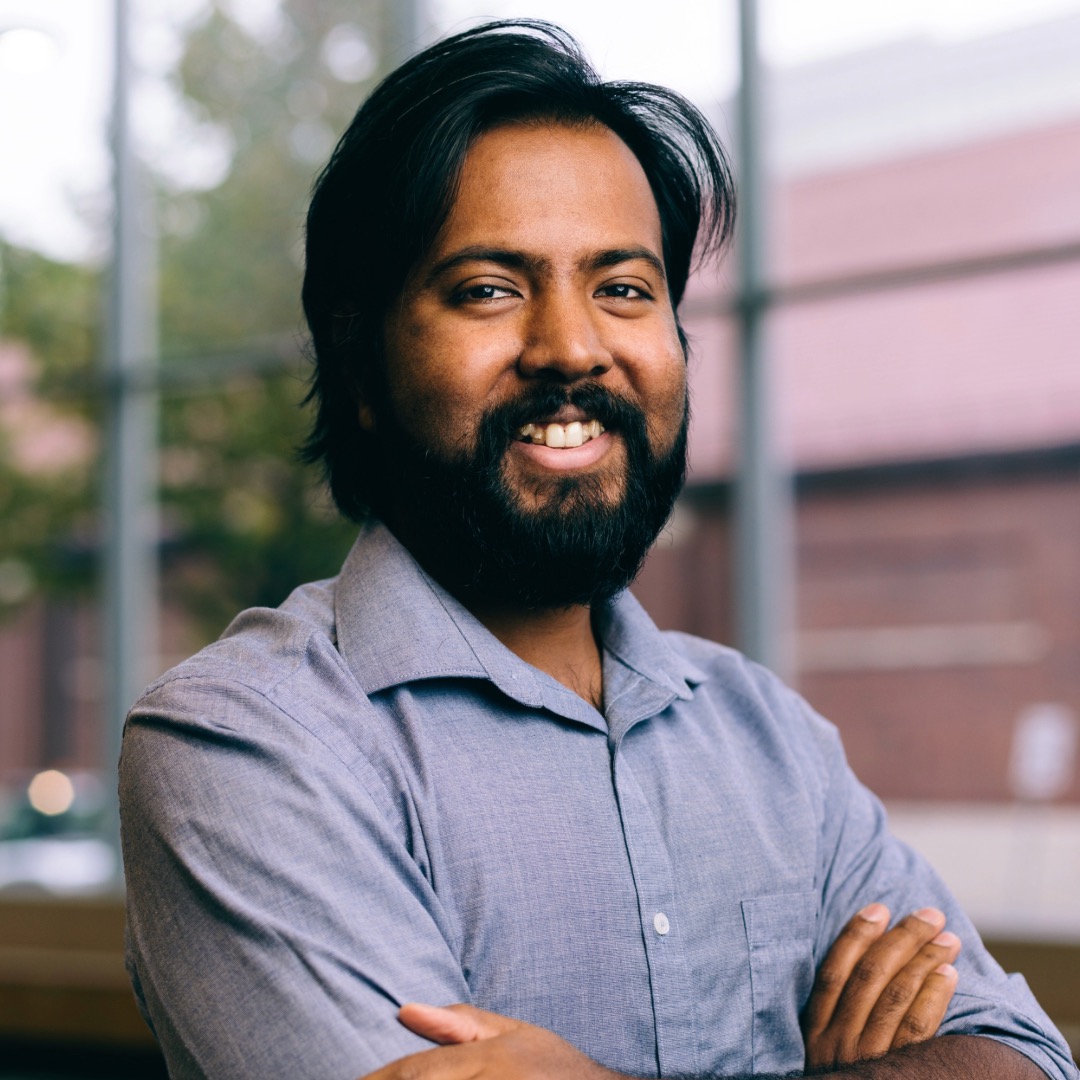
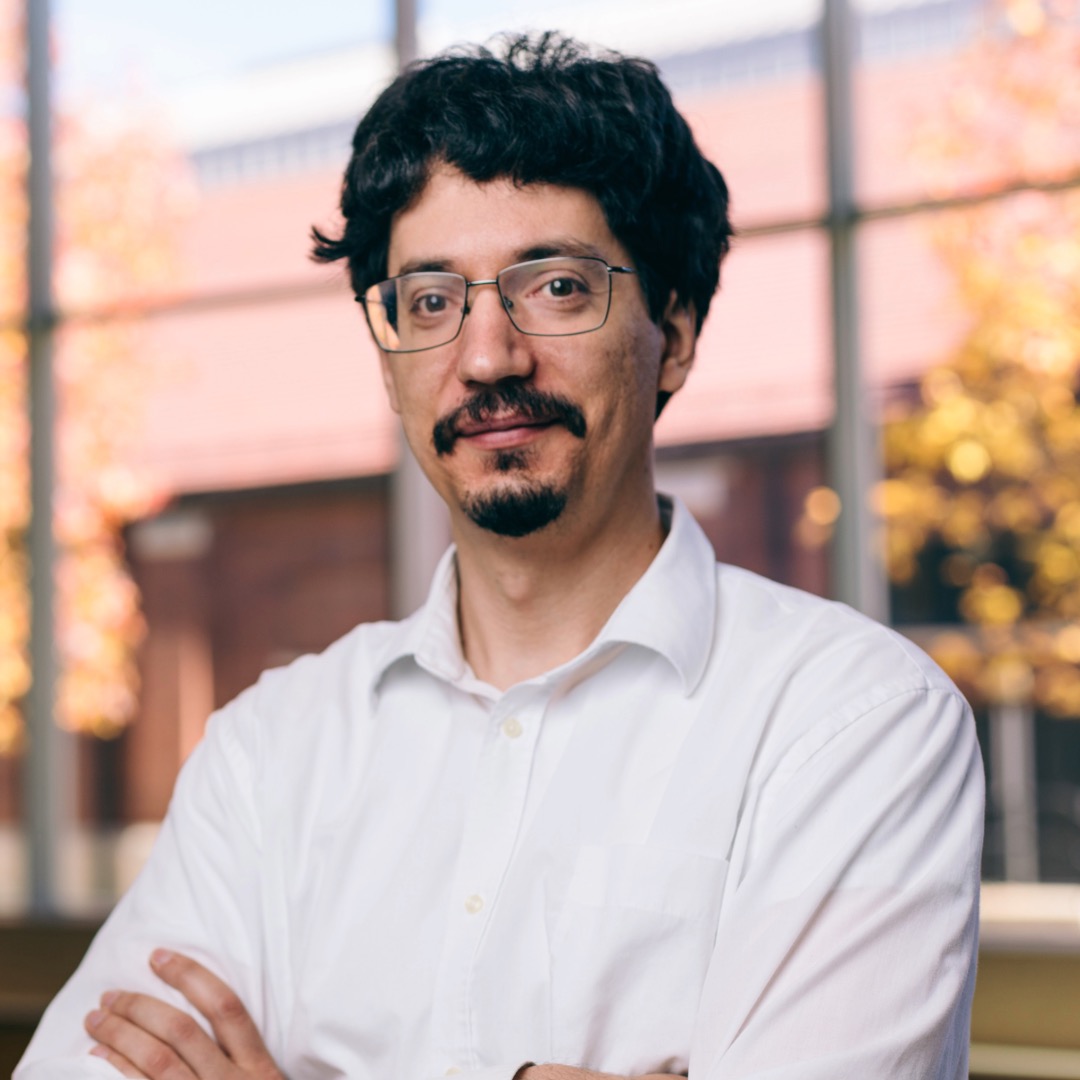 Antonio Bianchi
Antonio Bianchi